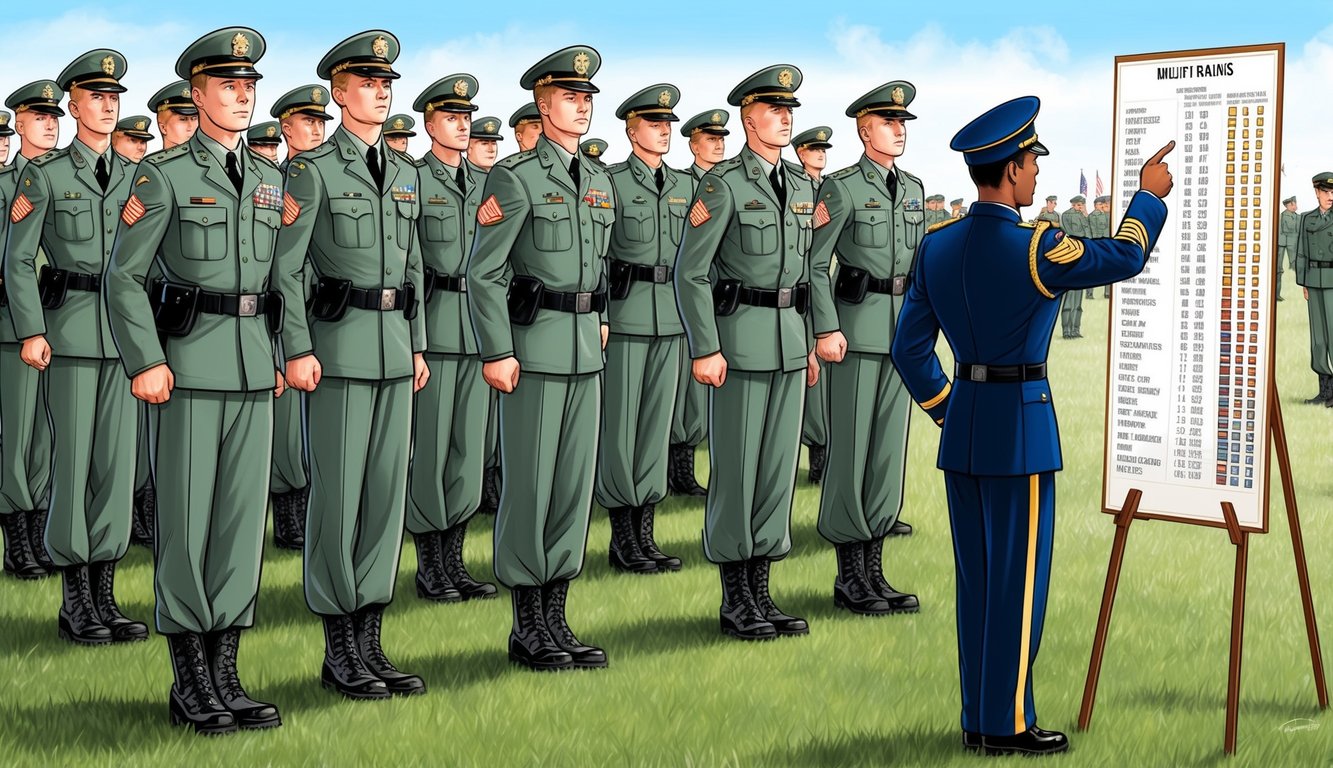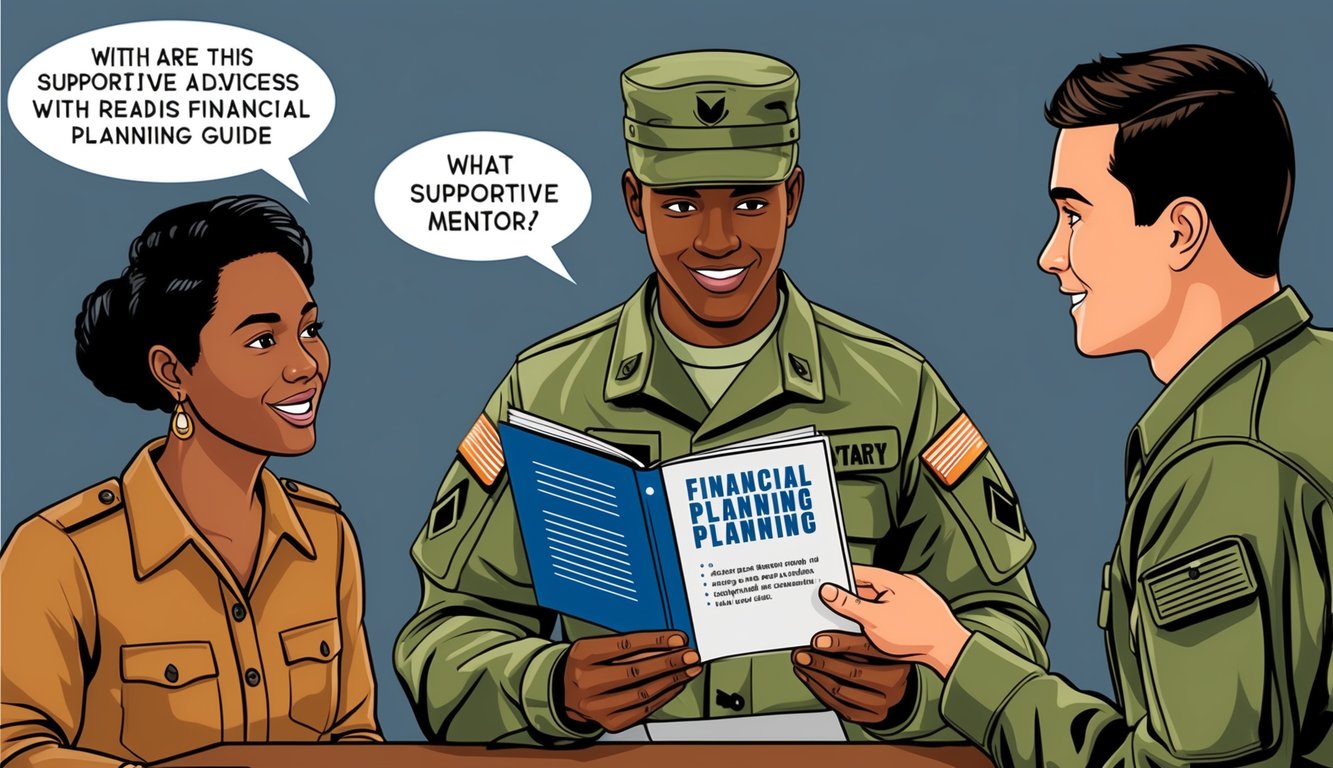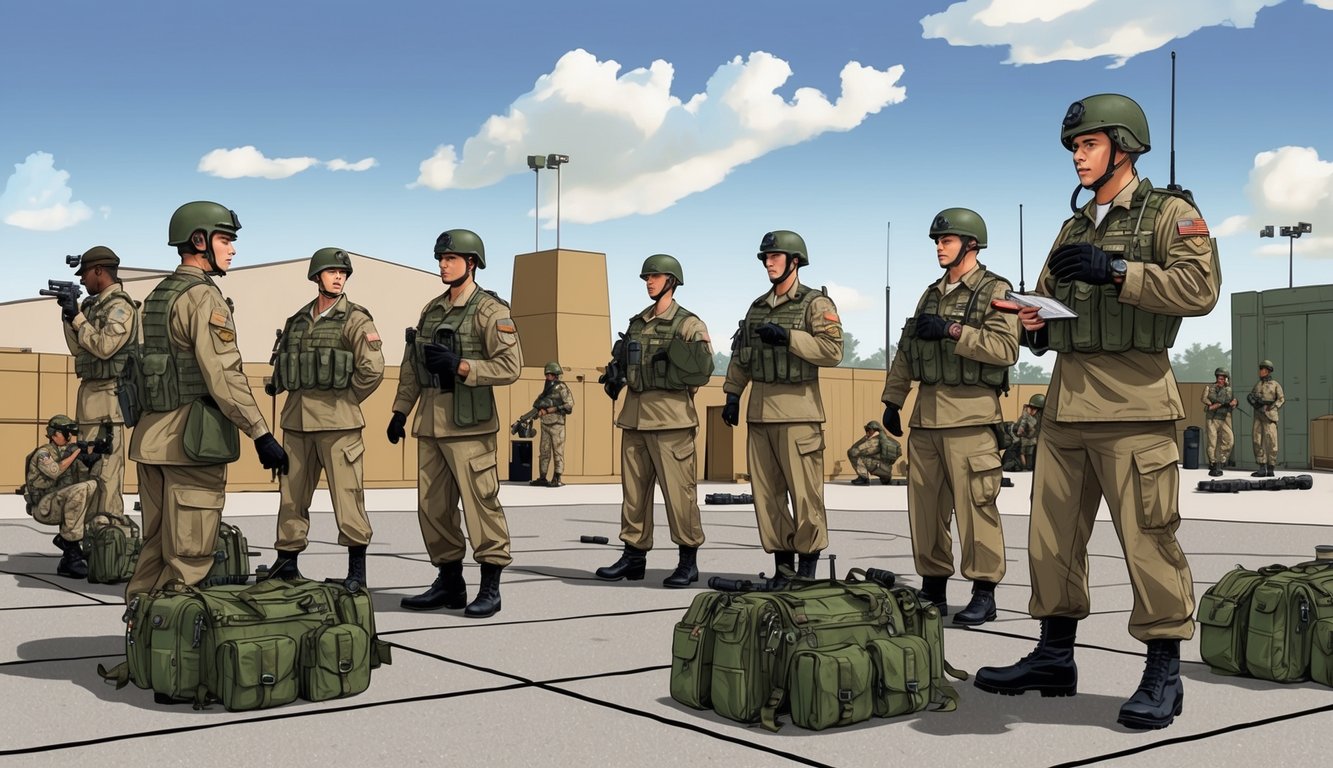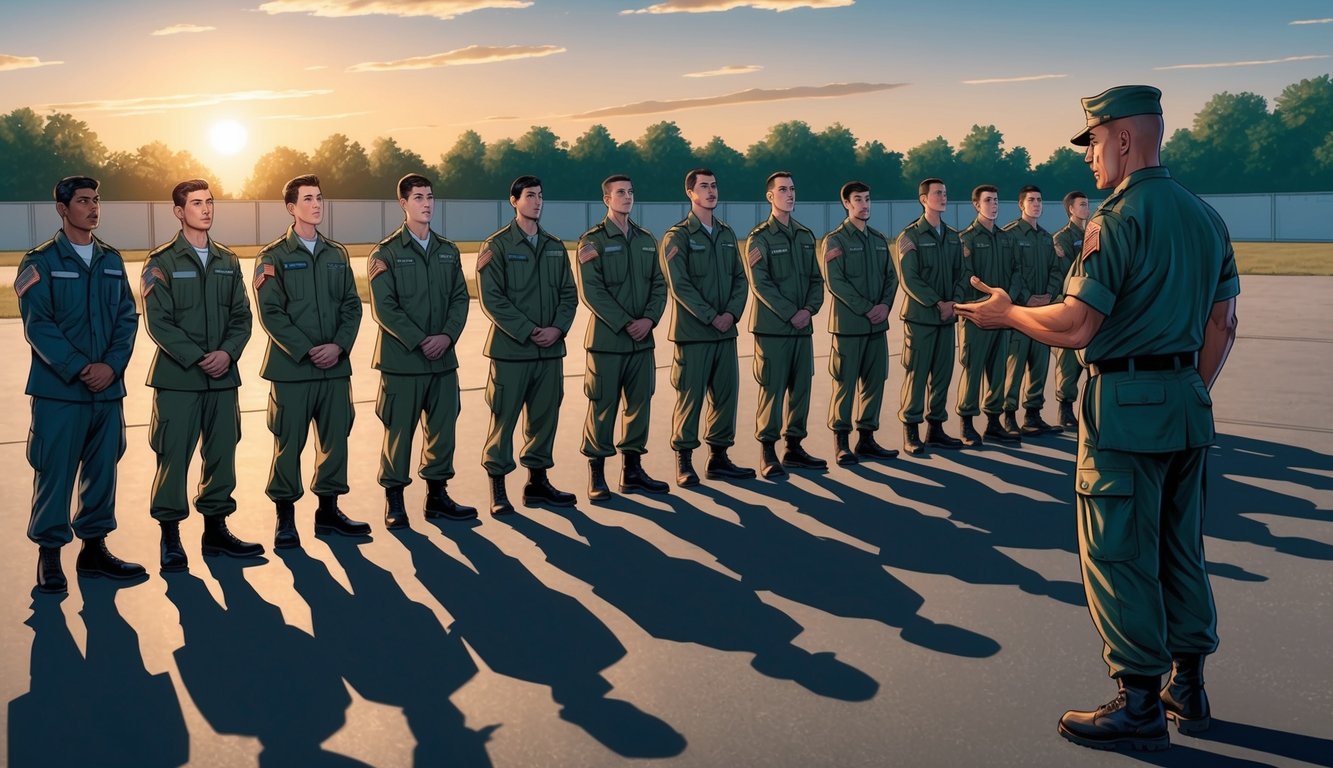Choosing to pursue a military career is a significant life choice that demands thorough preparation and the right mindset.
As you step into the role of a new recruit, you are entering an environment characterized by discipline, teamwork, and personal development. Emphasizing physical fitness, mental resilience, and a firm grasp of military values is essential as you prepare for this transformative experience.
Your adventure kicks off with basic training, an intense yet fulfilling journey designed to shape civilians into soldiers.
You will encounter a series of physical and mental challenges that will test your limits, but keep in mind that countless individuals have successfully navigated this training before you.
Embrace these challenges, maintain your motivation, and rely on your fellow recruits for encouragement.
Life in the military presents unique opportunities for both personal and professional growth.
You will acquire valuable skills, forge lasting friendships, and contribute to a cause greater than yourself.
Although the transition may feel overwhelming, with the right preparation and mindset, you will be well-prepared to excel in your new role as a service member.
Key Insights
- Prioritize physical fitness and mental readiness prior to your assignment
- View the challenges of basic training as avenues for personal development
- Gain a strong understanding of military values and protocols to succeed in your new position
Getting Ready for Basic Training
Basic training is a crucial milestone for new military recruits.
It requires considerable physical stamina, mental fortitude, and meticulous attention to detail.
To succeed, you must prepare yourself in several key areas before reporting.
Grasping the Fundamentals
Basic training aims to transform you from a civilian into a soldier.
You will learn about military customs, discipline, and vital skills.
Anticipate long days filled with physical training, classroom sessions, and practical exercises.
Your daily schedule will be strictly regulated.
Expect early mornings, generally around 5 AM, with lights out typically by 9 PM.
Meal times are concise and structured.
Pay attention to the proper wear and upkeep of your uniform.
Maintain cleanliness in your living quarters—an improperly stored sock could result in disciplinary issues.
Requirements for Physical Fitness
Physical fitness is paramount during basic training.
Start your preparations now to avoid challenges later on.
Concentrate on:
- Running: Work toward completing 3-5 miles at a consistent pace
- Push-ups: Strive for 40-50 within 2 minutes
- Sit-ups: Aim for 50-60 in 2 minutes
Incorporate strength and flexibility training into your regimen.
Gradually increase the intensity to prevent injuries.
Keep in mind, you’ll engage in physical training almost daily while in boot camp.
The better prepared you are upon arrival, the simpler your transition will be.
Mental Resilience and Attitude
Just as crucial as physical fitness is mental toughness.
You will face stress, criticism, and challenges designed to test your endurance.
Foster a positive outlook.
Accept the discomfort—difficult times are chances for growth.
Stay focused on your objectives and remind yourself of your reasons for joining.
Employ stress management techniques like deep breathing or visualization to stay composed in high-pressure situations.
Be prepared to work collaboratively within a team.
Your success will depend on uplifting your fellow recruits.
Leave your ego aside and be open to learning from others.
Adjusting to Daily Military Life
Military living entails unique daily aspects that new recruits should understand.
From housing arrangements to recreational opportunities, you’ll encounter both challenges and advantages as you adapt to this new lifestyle.
Housing and Accommodations
You will have several housing options as a new recruit.
On-base housing offers convenience and community.
Barracks are standard for single service members, providing shared living spaces.
If you are married, you may be eligible for family housing on base.
Off-base housing is also available, supported by a Basic Allowance for Housing (BAH) to help cover expenses.
When deciding where to live, consider commute times and local amenities.
Military housing generally comes furnished, reducing moving costs.
On-base accommodations typically include utilities, making it easier to manage your finances.
Dining and Shopping
Military bases feature a variety of dining options.
Dining facilities (DFACs) offer affordable, nutritious meals, while many bases have food courts with familiar fast-food outlets.
Commissaries provide groceries at discounted rates, helping you save on everyday essentials and offering products from diverse regions.
The Base Exchange (BX) or Post Exchange (PX) offers tax-free shopping for clothing, electronics, and household items.
These stores generally have competitive pricing and military-specific products.
Ensure you have your military ID for access to these amenities and discounts.
Family Life and Parenting in the Military
Military life can be fulfilling for families but presents unique challenges.
Support services such as childcare centers, youth programs, and family readiness groups are available.
Frequent relocations can affect your children’s education.
The Military Child Education Coalition provides resources to assist with school transitions.
Your family has access to healthcare through TRICARE, which offers comprehensive medical and dental coverage.
Deployments can be tough on families.
Utilize resources like Military OneSource for counseling and support during separations.
Recreational and Travel Opportunities
Military life includes exciting recreational options.
On-base gyms, pools, and sports facilities are often free or low-cost.
You can participate in intramural sports leagues or fitness classes.
Many bases have outdoor recreation centers that provide equipment rentals for activities like camping, fishing, or skiing at discounted rates.
The Armed Forces Recreation Centers offer affordable vacation choices in various locations worldwide, including resorts in Hawaii, Germany, or South Korea at reduced prices.
Space-Available flights allow you to travel at no cost on military planes when there is available space, providing a budget-friendly way to explore new areas.
Advancing Your Military Career

To advance your military career, you must demonstrate commitment, engage in ongoing learning, and strategize effectively.
Focus on cultivating leadership skills, seeking specialized training, and preparing for a smooth transition to civilian life to maximize your potential.
Developing Leadership Skills
Leadership is essential for career progression in the military.
Actively seek opportunities to lead teams and take on extra responsibilities.
Volunteer for demanding assignments that push your boundaries.
Mentorship plays a critical role.
Search for experienced leaders who can offer guidance and career advice.
Be proactive in requesting feedback on your performance and areas for improvement.
Enroll in leadership courses and professional military education programs.
These initiatives enhance your expertise and knowledge, making you more eligible for promotions.
Exhibit integrity in all your actions.
Your character and ethical behavior will be under scrutiny and significantly influence advancement decisions.
Specialized Military Training
Broaden your skill set through specialized training to elevate your value within the military.
Investigate advanced courses and schools relevant to your field.
Consider cross-training in related specialties to enhance your capabilities.
This adaptability can lead to new career opportunities and potential promotions.
Stay updated on the latest technologies and tactics within your area.
Attend workshops, seminars, and conferences to maintain current knowledge.
Obtain certifications that are applicable to both military and civilian jobs.
These credentials strengthen your qualifications and may aid your transition to civilian employment.
Transitioning to Civilian Life
As you focus on progressing in your military career, it’s wise to begin preparing for a potential transition back to civilian life.
Start planning early, even if retirement is some years away.
Utilize educational benefits to obtain degrees or certifications.
These qualifications will be advantageous in the civilian job market.
Network with veterans who have successfully transitioned to gain insights useful for navigating the challenges of civilian employment.
Develop skills that are transferable to civilian roles, including project management, leadership, and technical knowledge.
Document your accomplishments in ways that resonate with civilian employers.
Take advantage of military transition programs and resources, which can assist in translating your military background into civilian language and facilitate connections with prospective employers.
Financial Planning and Support

Effective financial management is vital for military personnel.
Appropriate financial planning ensures stability and peace of mind as you settle into your new career.
Concentrate on establishing a solid foundation with emergency savings and adequate insurance coverage.
Establishing an Emergency Fund
Begin assembling your emergency fund as soon as possible.
Aim to save between 3 to 6 months of living expenses.
Set up automatic transfers from your paycheck into a dedicated savings account.
This fund will help you manage unexpected expenses without resorting to credit cards or loans.
Consider placing your emergency savings in a high-yield savings account.
Many banks and credit unions provide specialized accounts for military members with competitive interest rates.
As your career advances, incrementally increase your contributions to solidify your financial safety net.
Insurance Coverage for Military Members
Safeguard yourself and your family with comprehensive insurance coverage.
The military offers Servicemembers’ Group Life Insurance (SGLI) at low costs.
Evaluate your coverage needs and consider additional policies if necessary.
Investigate renters or homeowners insurance to protect your belongings.
If you own a vehicle, ensure you have the correct auto insurance.
Some insurers provide military discounts, so compare options for the best deals.
Also, don’t overlook health insurance.
TRICARE offers extensive coverage for active duty personnel and their families.
Familiarize yourself with the benefits of your plan and any out-of-pocket costs you might incur.
Grasping Military Operations

Military operations encompass a broad range of activities you will need to understand as a new recruit.
This includes deployments, interactions with drill instructors, and acknowledging the ramifications of your actions.
Deployments and Relocations
As a service member, you will likely encounter deployments and frequent relocations.
Deployments can last anywhere from a few months to over a year, depending on your role and mission objectives.
Mental and physical preparation for these extended absences is essential.
Frequent moves are also a standard aspect of military life, requiring you to adjust to new bases or even overseas assignments.
The military typically offers support for these transitions, including allowances for housing and moving assistance.
Stay open to quickly adapting to new settings.
Each location may present different cultural, climate, and work dynamics.
Remaining flexible and open-minded will facilitate easier adjustments.
The Role of a Drill Instructor
Your drill instructor will be vital to your initial military training.
They are tasked with transforming you from a civilian into a disciplined service member.
Drill instructors are renowned for their stern approach and high expectations.
They will challenge you both physically and mentally.
Their objective is to instill discipline, cooperation, and resilience.
Keep in mind that their rigorous approach serves a critical purpose.
They are preparing you for the realities of military life and potential combat scenarios.
Listen attentively, follow instructions meticulously, and always show respect.
Recognizing the Consequences of Actions
In the military, your actions carry significant consequences.
Grasping this reality is vital for your success and safety.
Discipline is essential; even minor infractions can lead to consequences like extra duties or loss of privileges.
Serious violations might result in demotion, loss of pay, or even discharge.
Your choices can also affect the safety of your team and the success of the mission.
In critical situations, a single misstep could endanger lives.
Always think carefully and consider the potential repercussions before acting.
Positive actions are similarly acknowledged.
Outstanding performance may lead to promotions, commendations, and increased responsibilities.
Strive to make decisions that reflect positively on yourself and your unit.
Logistics of Moving and PCS
PCS, or Permanent Change of Station, is a common aspect of military life, and you will likely move several times during your service.
The military provides resources to help simplify your transitions.
Upon receiving PCS orders, begin planning immediately.
Create a checklist of tasks and establish a timeline.
This will help you remain organized during busy times.
The military often covers most moving expenses.
You may opt for a government-assisted move or a personally procured move (PPM).
With a PPM, you manage the logistics but can retain any savings.
Before moving day, take an inventory of your belongings, recording serial numbers for valuable items to protect yourself in case of loss or damage during the move.
Packing an “essentials” bag with necessary items for immediate use at your new assignment is wise.
Include important documents, medications, and a few days’ worth of clothing.
Utilize the relocation assistance programs offered by the military for additional resources regarding your new duty station and housing searches.
Don’t forget to update your address with relevant organizations, such as banks, credit card companies, and subscription services.
The post office can temporarily forward your mail.
Common Questions

New recruits frequently have numerous queries about military life and training.
These FAQs address vital topics such as packing, preparation, training stages, and branch-specific information that will help you navigate the initial phases of your military journey.
What items should I definitely pack before going to basic training?
Pack wisely and lightly.
Focus on the essentials: a few changes of clothes, toiletries, and important documents.
Don’t forget underwear, socks, and a watch.
Leave valuable items at home.
Most essentials will be provided upon arrival at basic training, so avoid taking prohibited items such as electronics or excessive civilian clothing.
What can I do to physically and mentally prepare for Army Basic Combat Training?
Initiate a fitness regimen now by concentrating on push-ups, sit-ups, and running.
Aim to exceed the minimum physical standards before your arrival.
Mentally, cultivate a sense of discipline and readiness to follow instructions.
Employ stress management techniques such as deep breathing.
Prepare for a demanding environment by maintaining a positive outlook.
What are the different phases of Army training, and what should I expect in each?
Army Basic Combat Training typically consists of three phases: Red, White, and Blue.
The Red Phase emphasizes physical fitness and foundational military skills, while the White Phase focuses on weapons training and tactical exercises.
The Blue Phase involves field training and comprehensive evaluations.
Each phase builds upon the last, gradually escalating in difficulty and complexity.
How does National Guard training vary from other military branches?
National Guard training typically operates on a part-time basis, allowing you to maintain a civilian career.
While initial training is similar to active duty, ongoing commitments are less frequent.
After basic training, expect to train one weekend a month and two weeks each year, focusing on state-specific missions and disaster response.
What specific challenges should I prepare for during the Red Phase of training?
The Red Phase is designed to be intense and challenging.
Anticipate early mornings, rigorous physical training, and strict adherence to discipline.
You will learn basic military skills, customs, and courtesies.
The mental strain can be just as demanding as the physical elements.
Stay focused and remember that others are sharing in this experience.
What are some tips for successfully completing an Army training course?
To navigate an Army training course effectively, pay close attention to detail and adhere to instructions.
Remain motivated and maintain a positive attitude, even when faced with difficulties.
Collaboration with your fellow recruits is essential.
Support each other and build camaraderie.
Additionally, stay hydrated and care for your feet to prevent injuries.
Lastly, don’t hesitate to ask questions if you’re unsure.
Learn from your mistakes and always strive to put forth your best effort.

